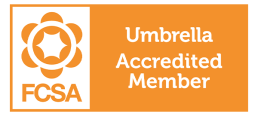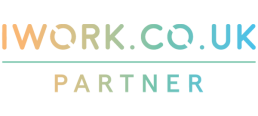The UK’s gig economy has continued to grow and according to the latest figures, there are now around 2 million freelancers in the UK. Whether you’re looking for a job with more variety, to strengthen your skill set in a certain industry, or want a job with flexible working hours, freelancing is a great way to leave behind your 9am-5.30pm job and explore your options.
What is a freelancer?
A freelancer is someone who is self-employed and provides their skills to a variety of different businesses, on a flexible basis. Freelancers work on both short-term and long-term projects which vary in size and there is no expectation of a permanent single client.
Some common freelance work includes marketing and PR, website design, graphic design, programming, photography and videography, fashion, data entry and bookkeeping, and writing of blogs and editorials.
Benefits of becoming a freelancer
There are several reasons to start freelancing:
- It offers a more flexible work schedule than full-time employment, allowing you to work part-time or during off-business hours if you want to.
- It gives you the opportunity to follow your interests and pick and choose what assignments to take on.
- You can work from anywhere, as many jobs require just a laptop and internet connection.
As a freelancer, you have more freedom to negotiate your rate of pay. - It allows for greater independence.
- You can use freelancing to generate extra income alongside your normal job if you are initially unsure whether running your own business is for you, or whilst you build up your client portfolio.
The downside to being a freelancer
Whilst the benefits far outweigh the downsides to freelancing, it is still worth considering the following:
- When you first begin freelancing the pay is often low, and it can take a while to increase.
It can take time to sufficiently build up your jobs to equal that of a full-time income. - Work can be irregular so you need to plan for periods of little to no income.
- You need to be organised, as managing clients and projects can be confusing and needs to be planned to avoid overlapping.
So, the question remains- should you become a freelancer?
When you first start freelancing it may seem daunting, but freelance work can be found just about anywhere in the UK. The best place to start to find potential clients is on freelance job sites such as Upwork and Freelancer. You can also join an association within your industry which will give you the opportunity to network with like-minded professionals and potential clients. Through the association, you may also hear about job opportunities and learn more about the market which you are operating in.
Becoming a freelancer could be one of the most rewarding things you ever do but becoming your own boss means you have no one to report to and it is up to you to find your clients, as well as choosing the hours you work. For some people, this means more freedom and greater control. However, it’s important to create a plan and a routine and stick to it. Set yourself goals and follow a structure to remain disciplined and keep yourself on track with work and targets.
When freelancing, it’s also important to understand IR35 legislation as it’ll impact how you pay your taxes etc. For more information, please click here.
The information above is written for guidance purposes only and should not be considered factual legal advice. Legislation is updated regularly and the content may be outdated. For more information, please call 01707 871622.
Check out our newest articles
21 January 2025
Becoming a first-time contractor in 2025
With the new year now in full motion, many workers are looking to explore new options for the next step in…
3 January 2025
Economic Review December 2024
As we enter 2025, this article provides an overview of the UK's economic performance in December 2024,…
17 December 2024
Opening hours during the festive period
We will operate as usual until the end of Christmas Eve (24th December, 09:00 – 17:30). However, during the…
13 December 2024
5 tips for nurses and healthcare professionals when engaging with an umbrella company
Umbrella companies are a popular method of payroll for nurses and healthcare professionals working on…
3 December 2024
Economic Review November 2024
Interested in keeping up to date with the latest economic performance information impacting businesses and…
14 November 2024
How will the rise in Employer’s National Insurance impact umbrella company employees’ take-home pay?
Chancellor Rachel Reeves announced in the Budget 2024 (Wednesday 30th October 2024) that the Employer’s…
7 November 2024
Churchill Knight Group enters exciting new chapter after acquisition
The Churchill Knight Group has been acquired by Magi GJJ – a group of business professionals with extensive…
31 October 2024
Budget 2024: The implications for recruitment agencies and their candidates using umbrella companies
The long-awaited Budget 2024 was delivered by Labour Chancellor Rachel Reeve in parliament on Wednesday, 30th…
31 October 2024
How will the increase in Employer’s National Insurance impact recruitment agencies and umbrella company employees?
On Wednesday, 30th October 2024, Chancellor Rachel Reeves delivered the first Labour Budget in over 14 years.…















